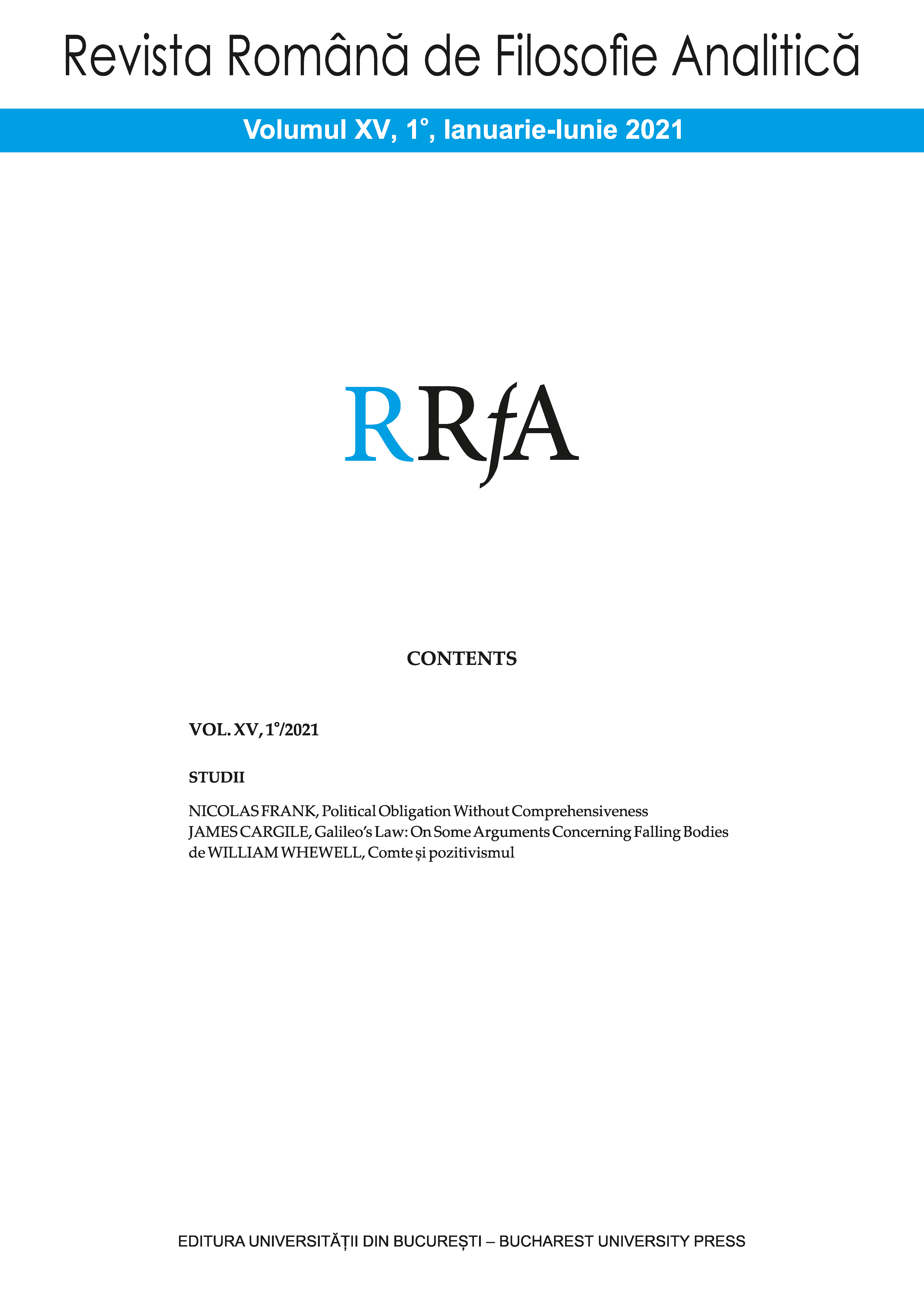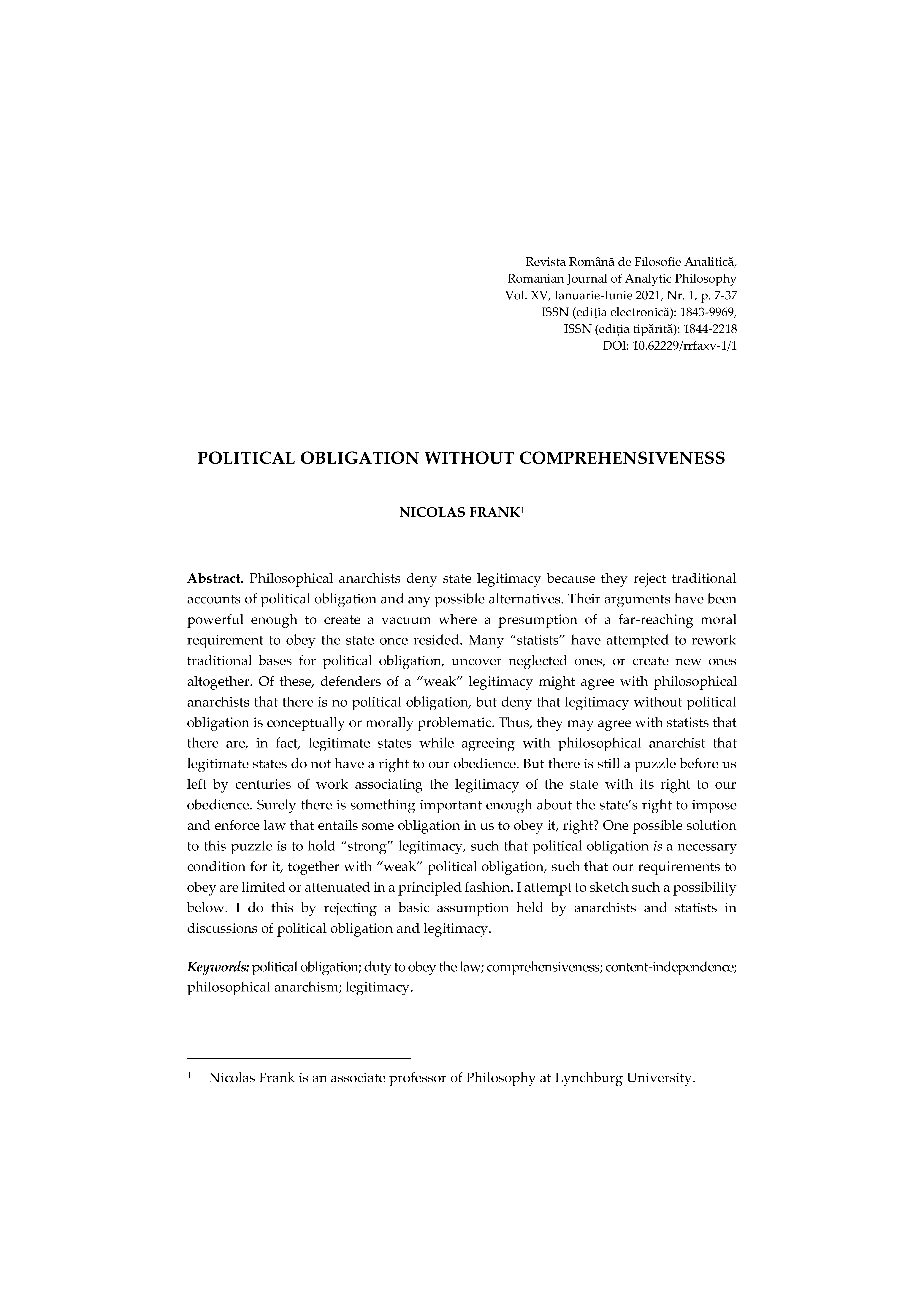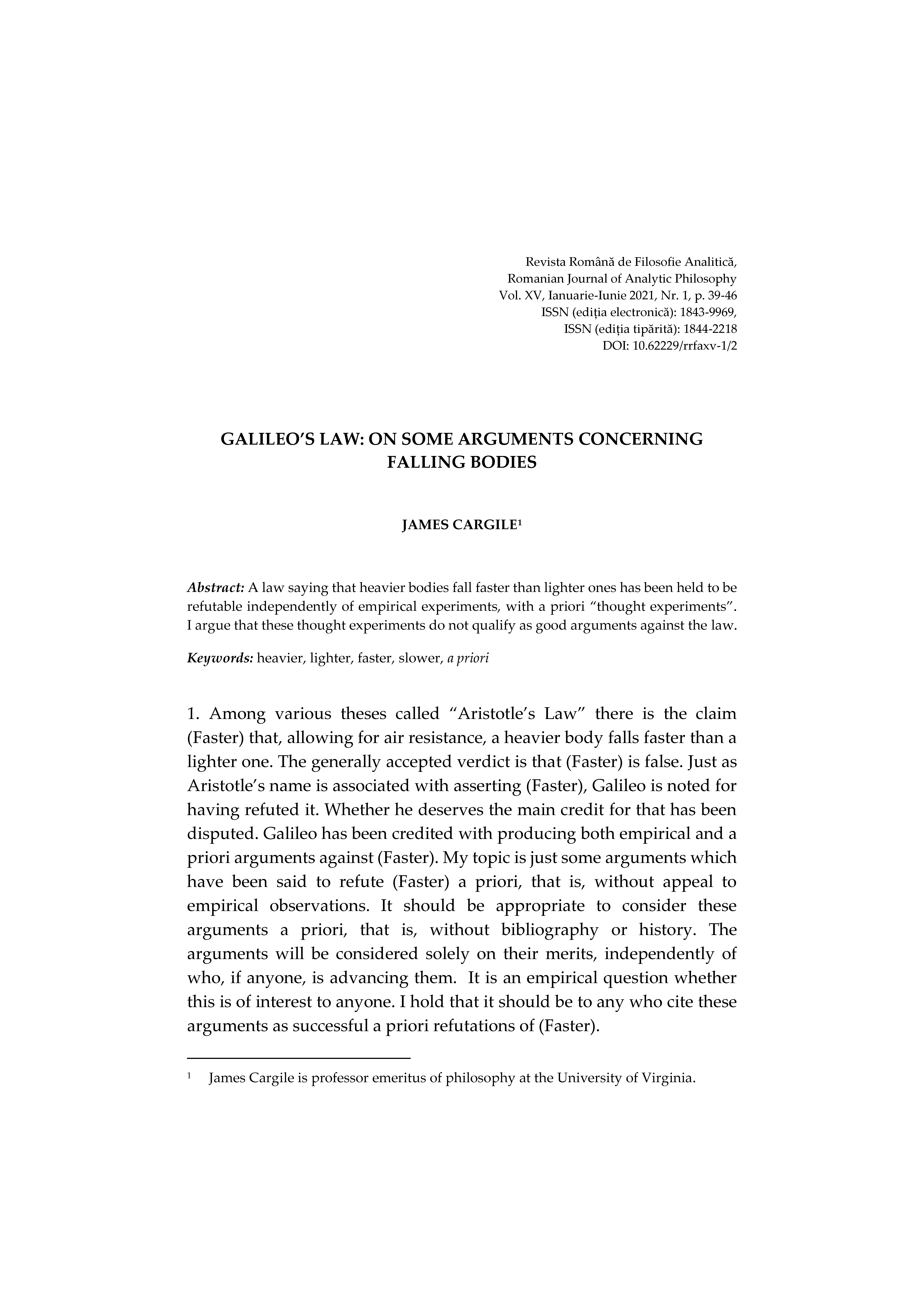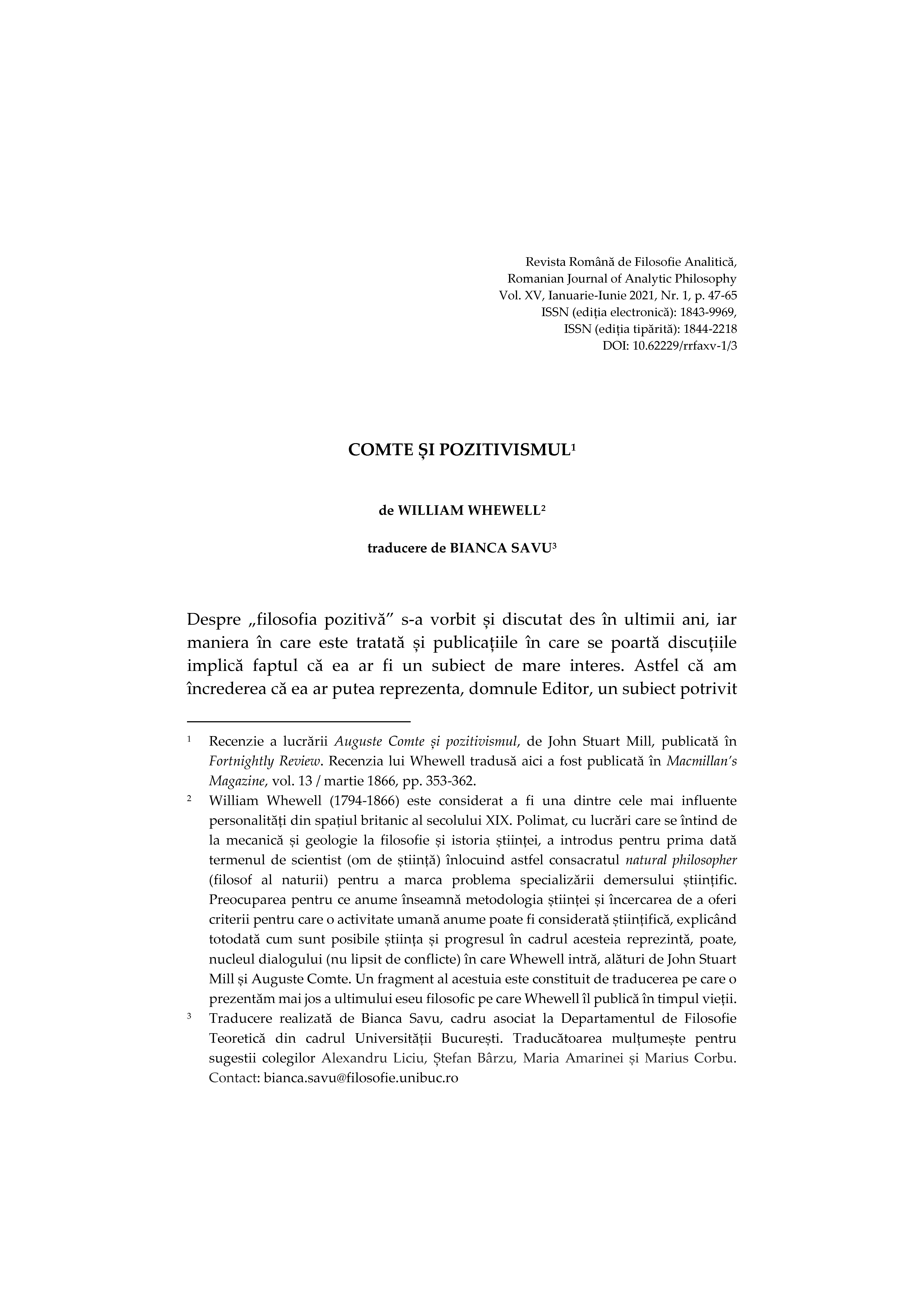Vol. 15 No. 1 (2021): Revista Română de Filosofie Analitică

The journal publishes articles in analytic philosophy broadly construed. Topics range from logic, philosophy of mathematics and epistemology to metaphysics, philosophy of biology, philosophy of cognitive science and philosophy of language, but is not limited to these areas.
Full Issue
Articles
-
POLITICAL OBLIGATION WITHOUT COMPREHENSIVENESS
Abstract
Philosophical anarchists deny state legitimacy because they reject traditional accounts of political obligation and any possible alternatives. Their arguments have been powerful enough to create a vacuum where a presumption of a far-reaching moral requirement to obey the state once resided. Many “statists” have attempted to rework traditional bases for political obligation, uncover neglected ones, or create new ones altogether. Of these, defenders of a “weak” legitimacy might agree with philosophical anarchists that there is no political obligation, but deny that legitimacy without political obligation is conceptually or morally problematic. Thus, they may agree with statists that there are, in fact, legitimate states while agreeing with philosophical anarchist that legitimate states do not have a right to our obedience. But there is still a puzzle before us left by centuries of work associating the legitimacy of the state with its right to our obedience. Surely there is something important enough about the state’s right to impose and enforce law that entails some obligation in us to obey it, right? One possible solution to this puzzle is to hold “strong” legitimacy, such that political obligation is a necessary condition for it, together with “weak” political obligation, such that our requirements to obey are limited or attenuated in a principled fashion. I attempt to sketch such a possibility below. I do this by rejecting a basic assumption held by anarchists and statists in discussions of political obligation and legitimacy.
-
GALILEO’S LAW: ON SOME ARGUMENTS CONCERNING FALLING BODIES
Abstract
A law saying that heavier bodies fall faster than lighter ones has been held to be refutable independently of empirical experiments, with a priori “thought experiments”. I argue that these thought experiments do not qualify as good arguments against the law.
-
COMTE ȘI POZITIVISMUL de WILLIAM WHEWELL
Abstract
Despre „filosofia pozitivă” s-a vorbit și discutat des în ultimii ani, iar maniera în care este tratată și publicațiile în care se poartă discuțiile implică faptul că ea ar fi un subiect de mare interes. Astfel că am încrederea că ea ar putea reprezenta, domnule Editor, un subiect potrivit pentru paginile Revistei dumneavoastră, iar eu sunt gata să-mi aduc contribuția la această discuție.






